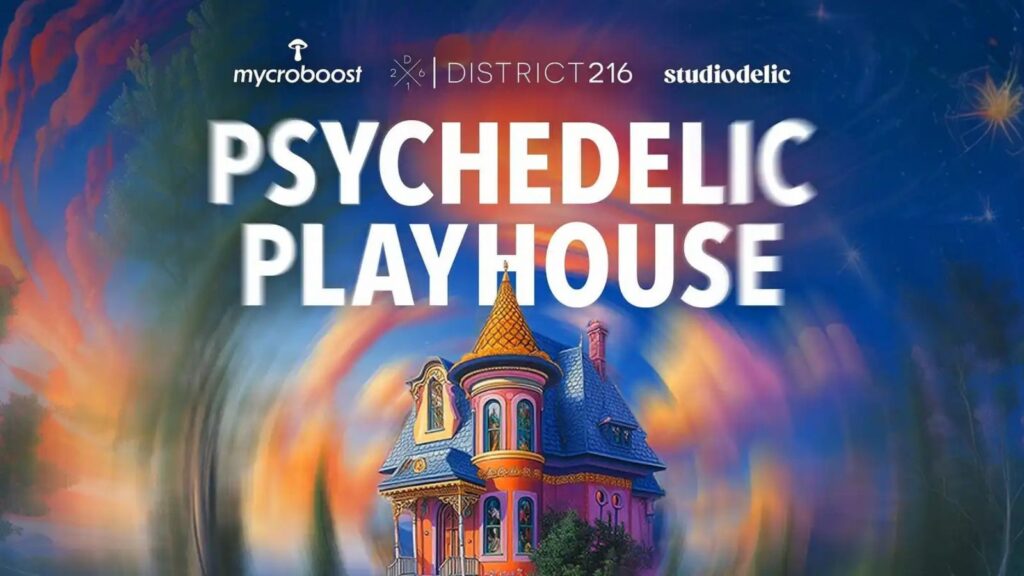Viridia Life Sciences is developing novel formulations of N,N-dimethyltryptamine (DMT) to treat a variety of mental health disorders.
Viridia, a new company, is a wholly-owned subsidiary of ATAI Life Sciences AG, a global biotech platform. The company will generate multiple DMT products “based on alternative routes to intravenous administration.” This is a common method for giving DMT. Ultimately, Viridia will leverage ATAI Life Science’s drug development expertise.
Florian Brand, the CEO of ATAI, discussed the company’s main goal in a press release. ATAI wants “to ensure maximum access to innovative mental health therapies.” DMT may represent “an opportunity to reach those who might be unable or unwilling to undergo a longer psychedelic experience.”
ATAI Life Science is based in Berlin, New York, and San Diego. Their goal is “to improve people’s lives by creating cures for mental health disorders.”
According to the biotech company, DMT is a psychoactive indole alkaloid present in ayahuasca. The press release describes DMT as “a hallucinogenic brew traditionally used in ceremonial settings in South America.” The release continues, “Like many psychedelic compounds, DMT acts as a partial agonist on a variety of 5-HT receptors.” DMT, however, takes effect more quickly, and its effect don’t last as long. For example, a psilocybin experience can last longer than six hours. But, “DMT’s hallucinogenic effects can pass in less than 15 minutes.”
Helping with Psychedelics-Assisted Therapy
Srinivas Rao is Chief Scientific Officer of ATAI. Of the novel DMT derivative products, Rao says ATAI expects them to simplify in-clinic administration. In addition, hopefully they will “allow greater pharmacokinetic control of the psychedelic therapy experience and its overall duration.” Rao added that “[p]atients may even be able to attend psychotherapy sessions later the same day.”
According to ATAI, “there have been few well-controlled clinical studies exploring isolated DMT as a treatment for depression.” ATAI further points out that “several recent studies have demonstrated the utility of ayahuasca in the treatment of major depression.”
Another study used in vitro assays with rat cells. It showed that DMT promoted “neuroplasticity, as assessed by neuronal growth and increased synaptic connections.” It correlated these processes with improvements in depressive symptoms. Furthermore, EEGs showed potentially beneficial effects of DMT on brainwaves. The researchers hypothesize that these effect could help treat depression.
Glenn Short, CEO of Viridia, explains, “This pragmatic approach to simplifying DMT administration and in-clinic treatment will help people access not only the neurogenic benefits of DMT, but also the personal insights that can accompany psychedelic-assisted psychotherapy.” As a result, says Short, “[t]he impact on patients and their families may be transmormative.”
Integrated and Affordable Treatment
The biotech company is also developing a digital therapeutic. Viridia is pairing IntroSpect Digital Therapeutics with their DMT products. This will allow for streamlining preparation, integration, and continued patient engagement.
“The idea is to get these drugs all the way through clinical development and secure FDA/regulatory approval for use in clinical settings. Moreover, by building pharmacoeconomic data, we intend to make this a covered treatment (i.e., insurers/payers will include this in standard plans), thus ensuring patients don’t bear the costs of treatment,” Allan Malievsky, Communications & Development Associate at ATAI Life Science, explained.
Viridia expects clinical trials to begin early next year.















